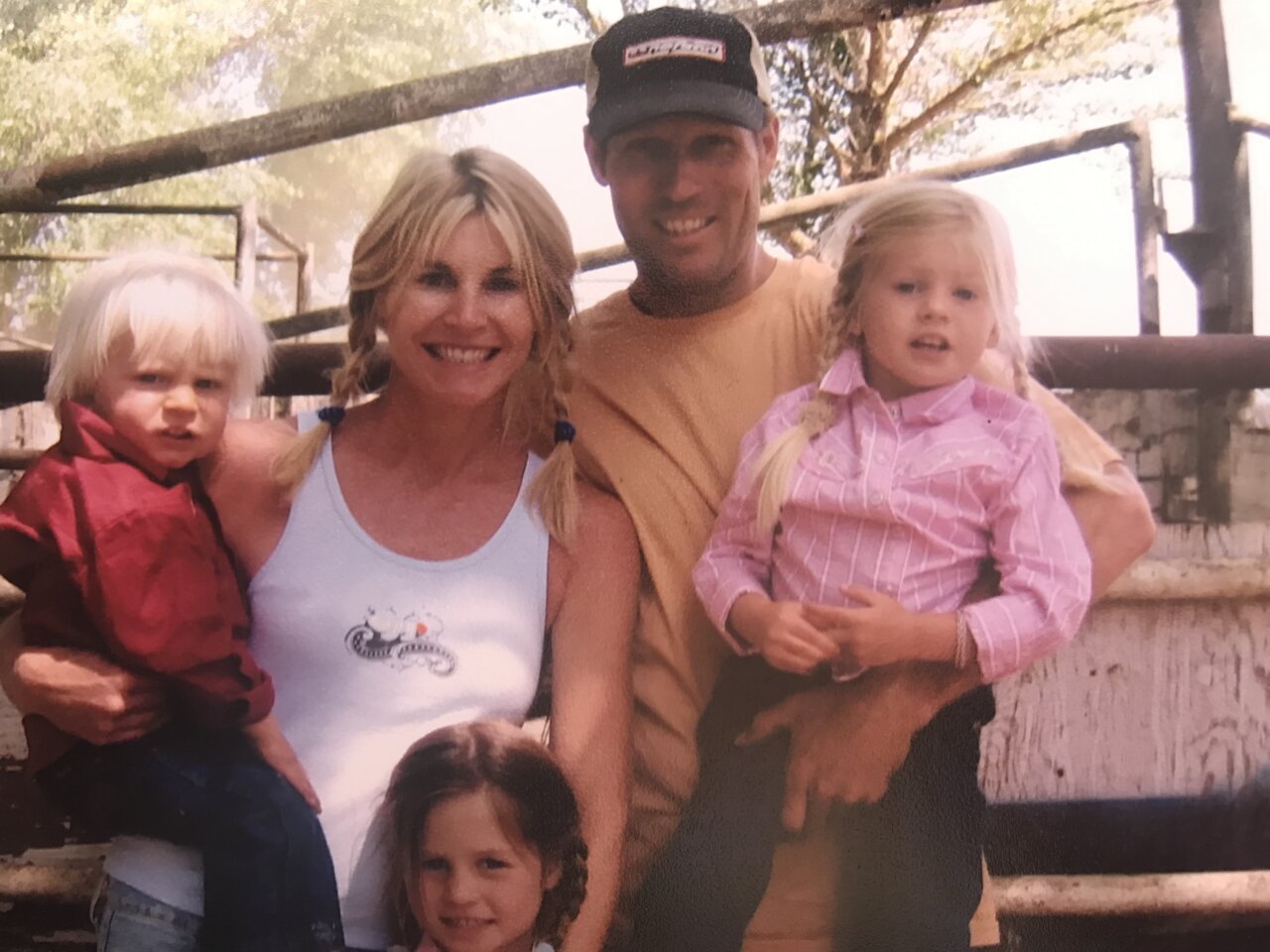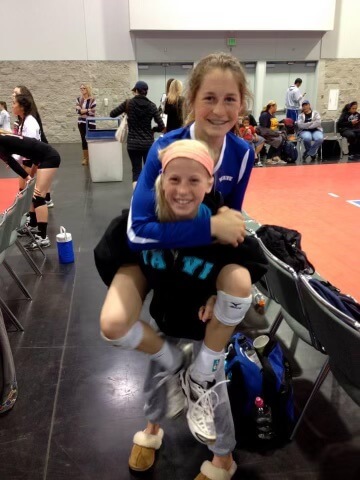I can’t remember exactly how old I was when I started having issues with anxiety.
Trigger Warning: This article series discusses anxiety, depression, and panic attacks.
I love getting to know people – hearing their stories, relating to them, learning, opening up, laughing, crying, and whatever else may come with having conversations with all kinds of different people. I think hearing others’ stories comforts us, especially when those stories make us feel like we are not alone. Humans are not meant to walk through life solo (with a few rare and admirable exceptions).
Which is where this article comes in – sharing my mental health journey in hopes of helping others through their struggles. I want others to know they’re not alone in their struggles with mental health. I hope by sharing my story, I can help people in some way, even if it’s just one person.
Everything I am about to write is based on my life experiences, what has and hasn’t worked for me, the ups and downs, and everything in between. We’ve all had very different life experiences, so some of you may relate to this a little bit, some of you a lot, and some of you maybe not so much.
I am a sociology major and a beach volleyball player, not a psychologist or therapist. So I’m no professional in any of this! But I’ve been through a lot in these past 24 years with anxiety and panic, so I’ve learned quite a bit. The amount of hours I’ve spent on WebMD as a hypochondriac is actually quite concerning; I’m halfway to a medical degree.
I can’t remember exactly how old I was when I started having issues with anxiety. All I know is that I was super young. I remember my parents would go out to date night once a week at their favorite restaurant down the street. At the time, we had a nanny that lived with us and was someone we were very comfortable with. But every time my parents would leave for date night, I would sit by the front door and sob until they came home.

I had both of my parent’s phone numbers memorized, and I would hold the home phone all night and repeatedly call my mom. If she didn’t answer, I would immediately call my dad. This happened probably every 20 minutes. I’d ask if they had gotten to the restaurant, ordered their food, if they had ordered drinks or dessert, if they had gotten the check, or left to come home yet. And if one of them didn’t answer, and then the other one didn’t answer, I would lose my mind until they called me back.
I don’t know what caused this type of stress or fear; I wish I knew. My parents were always around and had a great relationship (still going strong!!). Neither one ever left for long periods of time. I just had this irrational fear that something really bad was going to happen. I would catastrophize everything, always jumping to the worst possible scenario. Pretty sure this is when all my anxiety started.
My first panic attack came on a flight with my mom from San Diego to LA. I felt super strange when we boarded. I couldn’t breathe, and I remember so vividly asking the flight attendant for water and telling my mom that I felt like I was going to pass out. It was so strange for that to happen on such a short flight, only a 25-minute connection, especially after having no trouble flying so many times before. I was still so young, just 12. That was my first panic attack of many throughout my life. After this flight, flying became a phobia of mine (it still is; highly inconvenient for my chosen lifestyle). I don’t know if it’s a claustrophobic thing or just a hypochondriac thing where I fear something bad happening to me on the plane, or just the perfect storm combination of both.
The next time was in a high school classroom in junior year. My heart skipped a beat, then started racing out of nowhere. I wasn’t taking an exam or doing anything stressful; I just started to feel what I now know as the symptoms of a panic attack. But back then, I literally thought I was dying. I started to panic about the physical symptoms that I was experiencing and ended up walking to the nurse’s office with a friend.
When I got to the nurse’s office, and they hooked me up to a heart rate monitor, my heart rate was above 175. I clearly wasn’t exercising, and my physical symptoms grew stronger as I watched my heart rate on the monitor until I passed out. I woke up to paramedics picking me up and taking me to the hospital, where they ran tons of tests for my heart. They even put me on a heart rate monitor for a month to make sure that there were no issues with my heart. Of course, it turns out there was nothing wrong with my “16-year-old heart.” I will never forget when the cardiologist told me, “There’s nothing wrong with you. Go home and rest.” But I felt like I was going to die. I didn’t understand how there couldn’t possibly be anything wrong with me.
This whole episode sparked a pretty nasty cycle of panic and anxiety that took me months to overcome. I could barely leave my bed because my body was in a constant state of “fight or flight.” I would have panic attacks at indoor tournaments in the convention centers where the lights were super bright, and the noises were extremely loud. I was so uncomfortable and so in a state of panic that I’d cry in between games, holding onto my dad or mom, just wishing they could take it all away. I’m sure they wished they could take it all away too. But I would somehow get on the court and play my absolute best volleyball.

This happened during major recruiting years. I obviously knew I wanted to play volleyball in college, so I knew how important these tournaments were. But I couldn’t even think about that because I was literally just thinking about surviving and breathing and staying alive. In reality, my health was fine. It was just my body, for some reason going into fight or flight constantly. My dad would console me in the corner of the gym when my teammates were hanging out, eating lunch, and even warming up for games. I could barely even get myself mentally prepped to play the game. Somehow, though, the second the first whistle blew, I would play volleyball like nothing was wrong until the last ball dropped. And then, I would revert back to my constant state of stress. I lived in it, couldn’t escape it, except on the court.
I’ve tried for so long to forget what happened to me and move past it because these were some of the toughest times I could have ever imagined. It was close to a year of being stuck in this terrible place where I just couldn’t stop thinking about what was wrong with me – from the second I woke up until the moment I went to sleep. I would just worry about what was wrong with me. I’d always ask myself, “Why me? Why do I have this curse?” I couldn’t live my life alone, nor in silence ever. I had to always be with someone or have a TV on to make myself fall asleep because my thoughts were too loud and scary to escape.
I don’t know exactly what got me out of this state; it went as quickly as it came. But that wasn’t the end of it.
Savvy’s story will continue.
_____________________
If you or someone you know is living with panic attacks, anxiety, is struggling emotionally, or has concerns about their mental health, there are ways to get help. You may use these resources to find help for you, a friend, or a family member:
Call 911 if you or someone you know is in immediate danger or go to the nearest emergency room.
988 Suicide & Crisis Lifeline
- Call or text 988
- Use Lifeline Chat on the web (English only)
The Lifeline provides 24-hour, confidential support to anyone in suicidal crisis or emotional distress. Call or text 988 to connect with a trained crisis counselor.
Disaster Distress Helpline
- Call or text 1-800-985-5990
The disaster distress helpline provides immediate crisis counseling for people who are experiencing emotional distress related to any natural or human-caused disaster. The helpline is free, multilingual, confidential, and available 24 hours a day, 7 days a week.
Social Media Concerns
If you are worried about a friend’s social media updates, you can contact safety teams at the social media company. They will reach out to connect the person with the help they need.